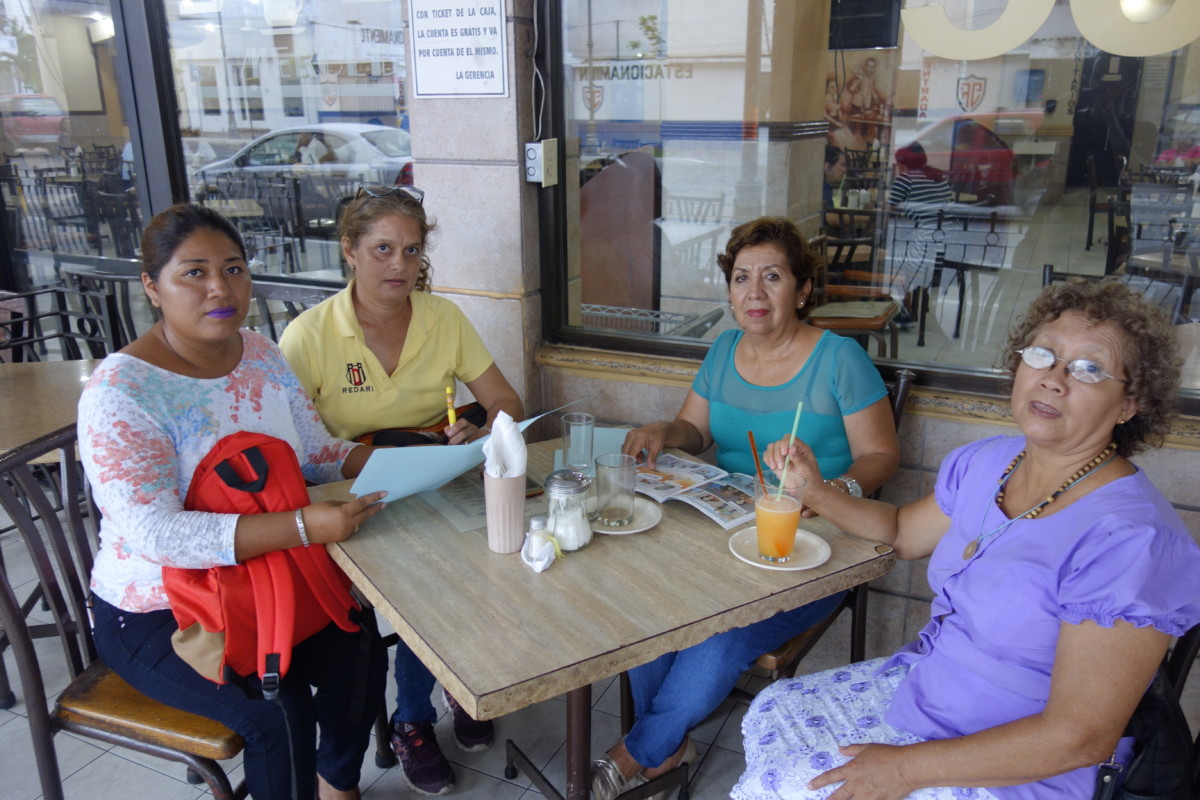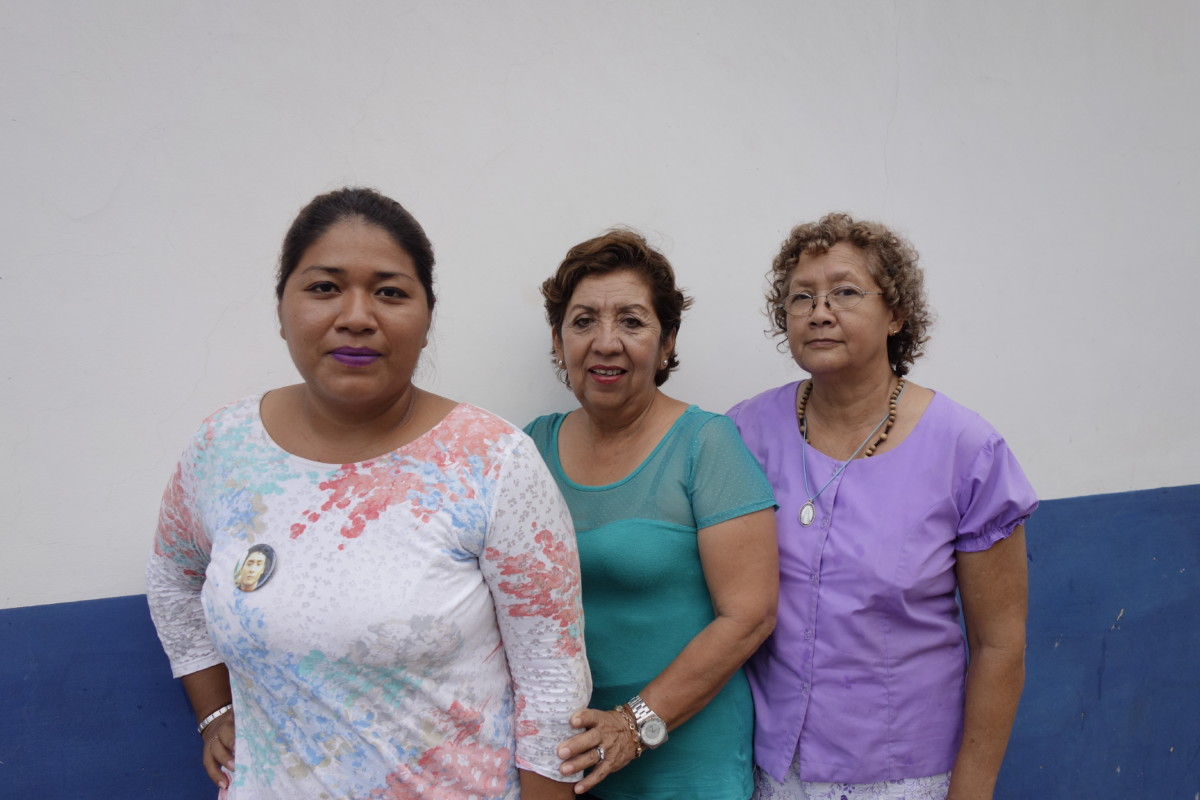Mexico’s historic port of Veracruz has long been characterised by conflict: Having fought off the Spanish, the French and the Americans – twice – it has earned itself the title of “Cuatro Veces Heroica” or “Four Times Heroic” for its valiance in battle.
Today’s Veracruz is free from colonial attack, but it has once again become an epicenter of conflict in recent years. More than 5,000 murders were recorded in 2012-2016, and as many as 20,000 individuals were “disappeared” from the region in 2006-2016. For reporters, Veracruz has become the “most dangerous place in the entire Western hemisphere.”
This time, Veracruz residents are under siege not from foreign forces, but from drug cartels, corruption and the state’s very own police force. The ubiquitous 4x4s pickup trucks manned by heavily armed police aside, there are also no obvious signs of destruction or conflict on the city’s expansive coastal roads: Veracruz’s latest war is largely invisible. Unless of course, one experiences it first-hand.
“Why Do Some Appear and Others Not?”
Blanca del Carmen Leyva is now retired and lives with her family in a middle-class neighbourhood a few kilometers off the coast. Her son, Vicente Rodolfo, who dedicated himself to a modest living maintaining electrical appliances, is photographed in a polished gold frame sitting on a glass table in her living room.
Ms. Leyva clearly remembers calling Vicente three years ago and urging him, not for the first time, to replace his run-down work van for a newer model. “I hated that beat-up old thing!” she says, breaking a wry smile. To her delight, Vicente said he had just reached 30 years of service with his company, so he would be trading in his van for a newer model with his loyalty bonus.
But a day later, when Vicente had not arrived for work, family and colleagues began asking for him at his mother’s house. His phone rang straight to voicemail.
When she had checked all local hospitals and realized no one else had heard anything from him, Leyva reported his disappearance to the police.
“I am a somewhat distrustful person, but the cause directed me toward believing in someone, someone that would tell me something about the whereabouts of my son,” Leyva says.
That was three years ago; since then, no one has heard any more of Vicente, his body never appeared, he never did get to replace his van and this was the final conversation Leyva had with her only son. The last thing Leyva knows of his disappearance is that he was waiting for the bus to go home. “We don’t know if it was there [that he disappeared] or when he got off at his house — we have no witnesses at all,” she says.
Later on, bodies of young boys in bin liners began appearing in the neighbourhood, but Vicente was never among them. “My question is: Why do some appear and others not?” Leyva asks. “But I still cannot find an answer.”

Veracruz’s Surge in Kidnappings and Corruption
Leyva is one of hundreds of mothers in Veracruz who continue to search for their disappeared loved ones since the phenomenon began to spike in 2010 with the election of former Governor Javier Duarte.
According to Leyva, and others who have lost family members, the victims are largely young men — some as young as 13 years old — and seemed to have been picked up and “disappeared” in acts of “social cleansing,” in which armed gangs select individuals for being homeless, poor or using drugs. Family members often question why their son was selected, but in some cases, it appears the boys were simply victims of a deadly mix-up.
“In one case, a school child overheard one of the men that took his friend away say, ‘We have the wrong guy,’” Leyva says. “But it was too late. ‘He’s already seen us,’ his accomplice replied, and they took him anyway.”
Despite persistent visits to the police station, in two years, there have been no developments in the investigation into the disappearance of Vicente. Authorities have consistently reiterated their limited resources, but the mothers have long held their doubts whether the authorities were ever interested at all.
“I thought it was going to be a stronger investigation, but in reality, this is a great disappointment I have to carry,” Leyva says. “If you lose a dog, maybe they’ll put a lot of attention into searching for it, but not for humans.”
Following this lack of interest and strange reports they heard from witnesses, many of the mothers began wondering if those who were supposed to protect their children were involved in their disappearance.
“We always knew that the police took the boys,” says Lucía Diaz, leader of the Solecito (Little Sun) Collective, a group of over 250 individuals in Veracruz who have lost family members and now work together to find them. “There are many testimonies, there are many witnesses. The problem is that many people do not want to speak out of fear.”
Lucía’s suspicions — and those of others in the collective — have since been confirmed to have been well-founded. What initially seemed to be a great tragedy has evolved into a scandalous state corruption case and offers a look into some of the most serious political issues Mexico faces today.
This year, it was revealed that some of these boys, aged 16-22, had been selected for alleged associations with drug cartels, picked up, tortured, killed and then hidden. The perpetrators, however, were not armed gangs, but the police authorities themselves, working secretly with the Jalisco Cartel to disappear rival cartel members of Los Zetas.
Police commanders received orders to carry out the secret operation from then-Governor of Veracruz Javier Duarte, who was previously charged for money laundering and links to organized crime. Having extradited Duarte from Guatemala last year, the current governor of Veracruz is now asking for additional charges against Duarte to be added to the list.
The then-attorney general of Veracruz is also implicated in the disappearances scandal for attempting to cover it up. So far, 19 police officers have been charged for their roles in the disappearances, but the full extent of the operation may never be revealed.
“In 99 percent of the cases, the police were responsible,” argues Lidia Lara, another member of the collective who continues to search for her brother. Others whose relatives have disappeared estimate the police to have been linked to up to 80 percent of the disappearances.
Truthout invited Veracruz’s district attorney and the local police force to respond to the allegations, but neither were able to comment on the matter.

The Search Goes On
Despite the uncovering of the corruption scandal and the involvement of international institutions such as the United Nations in the investigations, the majority of family members still have not recovered the bodies of their loved ones, according to members of the collective.
“They [the police ] say they can’t advance because they don’t have the resources, but I think there are resources here in Veracruz because they have the resources for their campaigns and publicity,” says Perla Damián, whose son was one of eight boys to have been taken in one police operation.
Following the police scandal and lack of results from state authorities, family members say their best hope to finding closure is through the efforts of the collective.
Solecito holds raffles and sells used clothes to fund the transport, lunch – and now heavy machinery – on its missions to find and dig up the bodies of the disappeared. Many of its members take part in the excavations themselves and have even begun training on how to identify the corpses.
“If it was not for all this, we would never have found the graves, as the government is not helping us at all,” Damian says.
In March 2017, the group found more than 250 skulls in a single mass grave. The discovery came after two men handed the collective a map marked with crosses during Solecito’s annual Mother’s Day march. To date, Lucía Diaz reports that the collective has discovered a total of 295 bodies — most of them complete and blindfolded in black bin liners.
The number of discoveries in Veracruz by Solecito and other collectives has become so high that Luis Tapia, a lawyer at the Miguel Agustín Pro Juárez Human Rights Center, which assists the collective in its excavations, says it has created a “structural problem”: The state is incapable of identifying bodies at the same rate at which voluntary organizations can find them. “No human body has been processed from those found in the two operations in which we have participated in both November 2017, and now,” Tapia says.
Such comments paint an unpromising picture, but members of the collective remain hopeful their dedication will bring results in the form of closure for the hundreds of mothers who continue longing for an answer.
“I have faith in finding my son and helping my sisters in the same pain to overcome and comprehend their absence [of their family members],” Leyva says. “These women are very strong, they are very brave.”
A promise to tackle a surge in violence and rampant corruption played a part in the election of Andres Manuel López Obrador, who will take presidential office in December. López Obrador has pledged to get to the bottom of the thousands of “unjust and terrible” disappearances that have taken place across Mexico in recent years by creating a national truth commission.
“In all states there are committees, there are groups of relatives of victims who are asking for help to find their loved ones,” López Obrador stated in June. “Let us act on that demand … to end the war.”
Join us in defending the truth before it’s too late
The future of independent journalism is uncertain, and the consequences of losing it are too grave to ignore. To ensure Truthout remains safe, strong, and free, we need to raise $27,000 in the next 24 hours. Every dollar raised goes directly toward the costs of producing news you can trust.
Please give what you can — because by supporting us with a tax-deductible donation, you’re not just preserving a source of news, you’re helping to safeguard what’s left of our democracy.
